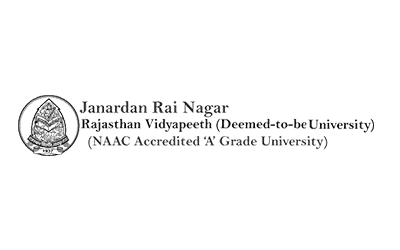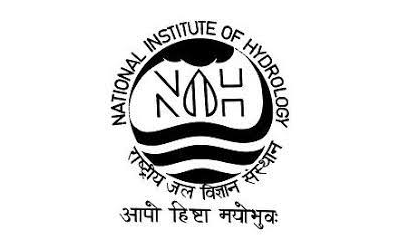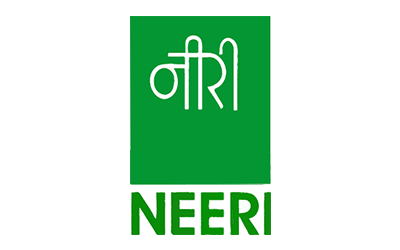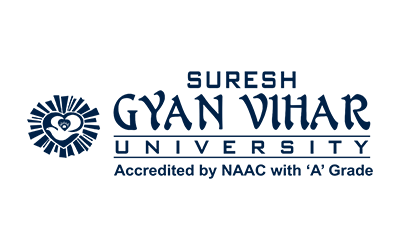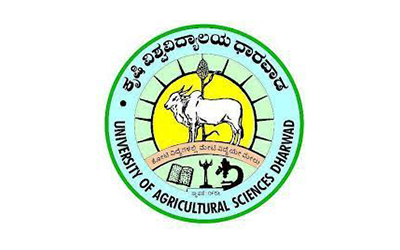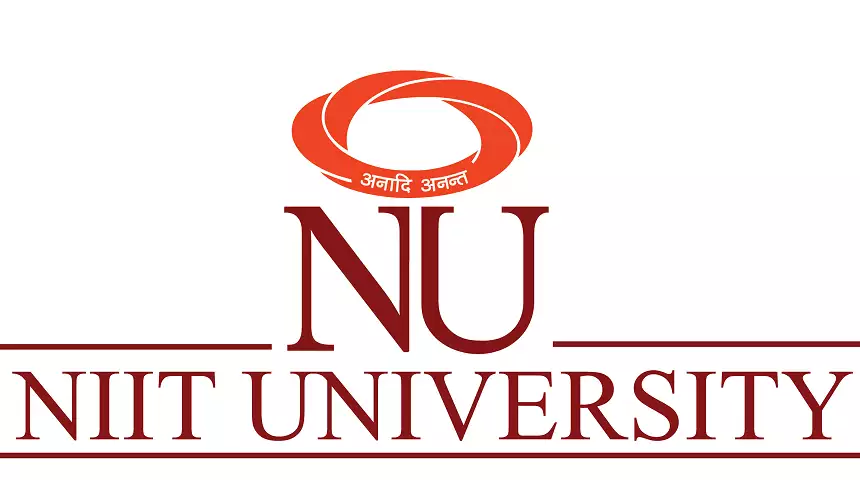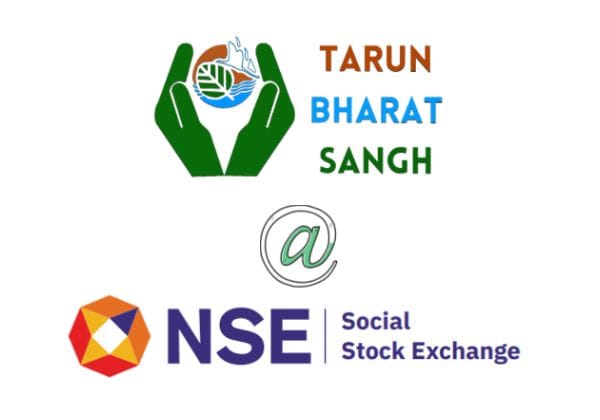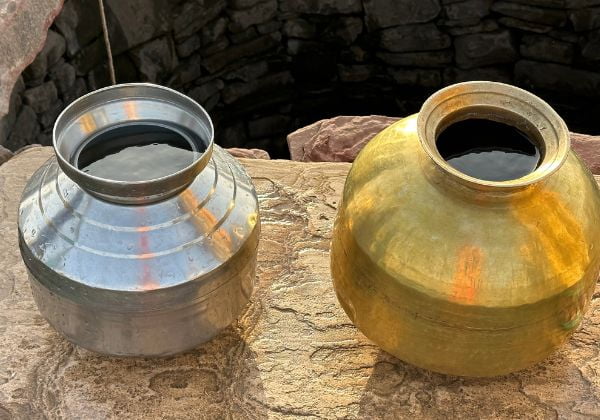Know Us
Tarun Bharat Sangh is a renowned Indian NGO working since 1975 towards climate change mitigation and adaptation by promoting water conservation, sustainable agriculture and rural development in the arid and semi-arid regions of India. We are deeply rooted in the philosophy of “Gram Swaraj” or village self-rule. Under the leadership of Waterman Rajendra Singh, Tarun Bharat Sangh has been actively involved in making water everyone’s concern.
By linking water to every sector of development, including health, agriculture, livelihoods, community welfare, and education, Tarun Bharat Sangh is working towards building a climate resilient future for communities in India. Our grassroots activism and commitment to environmental sustainability make us a leading organization in the field of water management and community empowerment.
Guiding Star
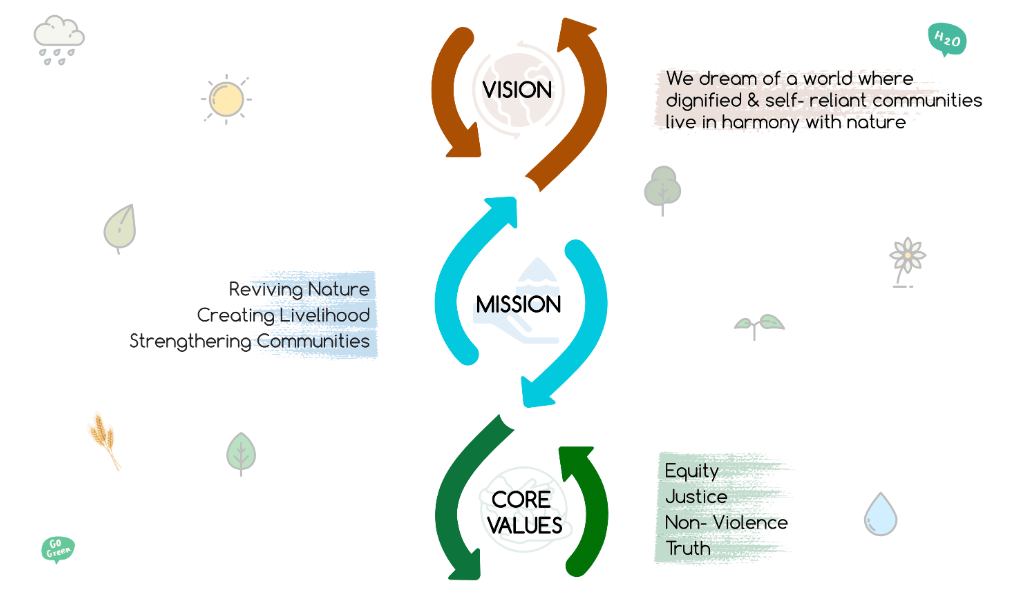
SDGs & Us
Goal 1
End poverty in all its forms everywhere.
- Increased household income due to water conservation
- Labour Camps
- Goat Kit Distribution
- Seed Kit Distribution
Goal 2
End hunger, achieve food security and improved nutrition and promote sustainable agriculture.
- Rain Water Conservation for irrigation
- Increased agricultural productivity
- Increased availability of nutritious vegetable and pulses
Goal 3
Ensure healthy lives and promote well-being for all at all ages.
- Nutrition kit for lactating mothers and pregnant women
- Distribution of lifesaving machines in hospitals,
- Distribution of home isolation kits during COVID-19
- Awareness camps for COVID vaccination and protective measures
- Distribution of sanitation and hygiene kits
- Distribution of Tulsi plants for good health
Goal 4
Ensure inclusive and equitable quality education and promote lifelong learning opportunities for all.
- Refurbishment of government school
- Distribution of stationary kits to school going children
- Training kids for online education
Presence
Global
100+ Countries reached through World Water Walks by Waterman Rajendra Singh.
India
13 Rivulets rejuvenated
21+ National level Water Marches (Jal Yatras)
100+ dedicated members of Water Community (Jal Biradari)
101+ Save River Campaigns
1000+ Schools/ Colleges/ Universities reached through Water Awareness Campaigns
2000+ River Volunteers trained through Lets know our rivers (Aao Nadi ko Jaanein)
5000+ Water conferences
14000+ Rain water harvesting structures
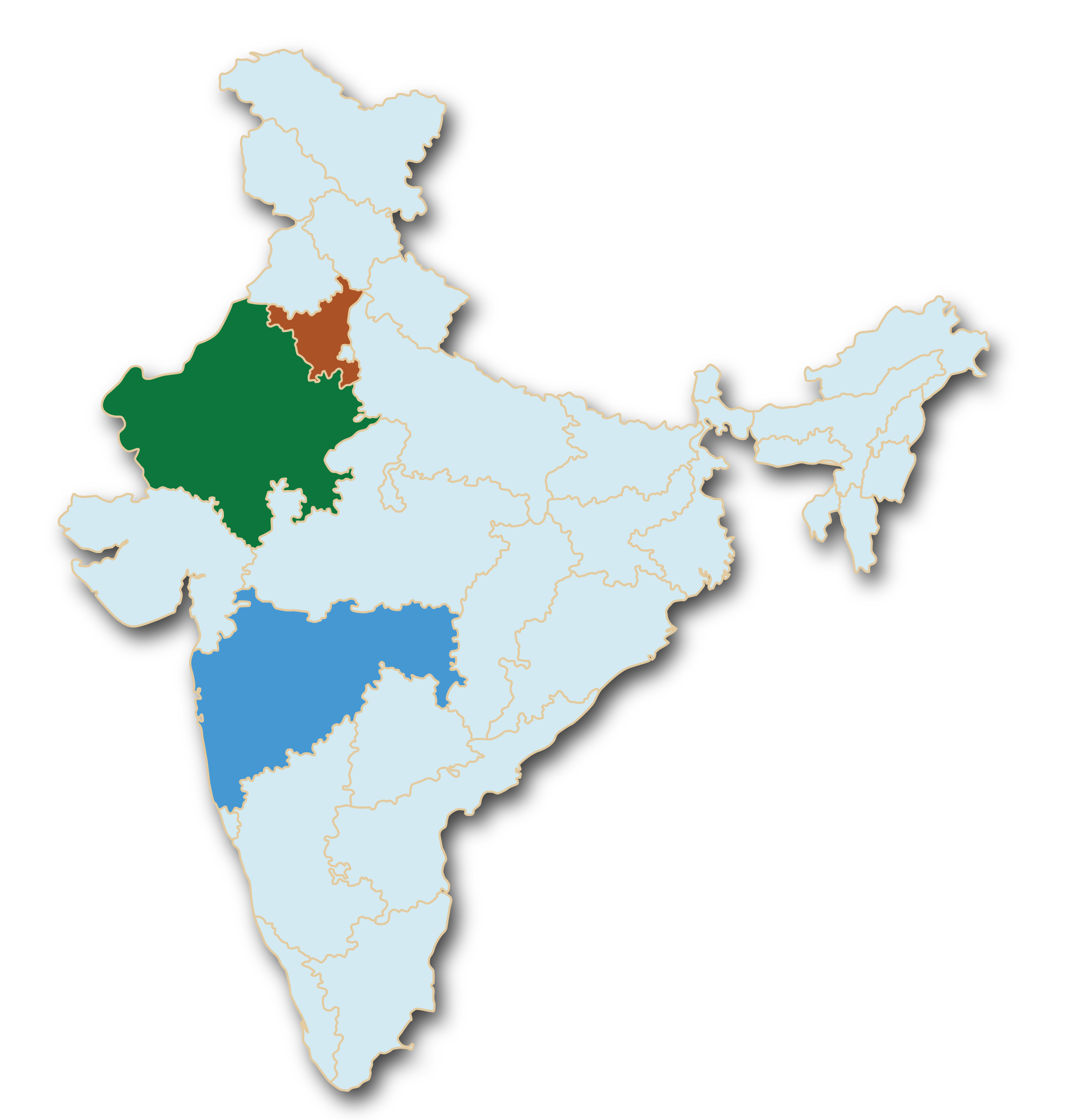
Haryana
260 million litres of water harvested every year
500+ farmers supported with efficient irrigation practices
Rajasthan
90 billion liters of water harvested every year through 13800 rainwater harvesting structures
5000+ farmers supported with efficient irrigation practices
Maharashtra
10 billion liters of water harvested every year
50+ km of Rivulets have been deepend widened.
Heritage

1975-80
In 1975, the Tarun Bharat Sangh (TBS) was founded in Jaipur, India, with the aim of promoting sustainable development and environmental conservation in India. Five years later, in 1980, Rajendra Singh joined the TBS as Secretary General. Under his guidance, the TBS's work has helped to improve the lives and livelihoods of rural communities in India, and has inspired similar initiatives around the world.

1981-85
In 1985, the Tarun Bharat Sangh (TBS) was shifted in Bheekmapura, Alwar, India. The organization's focus on water conservation was particularly important in this region, which was facing significant challenges due to declining water availability. The TBS's work in Alwar involved reviving traditional rainwater harvesting techniques, constructing Johads, and restoring rivers.

1986-90
In 1986, TBS constructed the first Johad in Gopal pura village, Rajasthan, with the participation of the local community. This marked the beginning of the organization's efforts in water conservation, which aimed to address the declining availability of water in the region. In addition to these efforts, the TBS also initiated programs for mother and child development, adult education, health clinics, village sanitation, organic farming, safe grain stocking, and prohibiting alcohol consumption. Over time, the TBS's work in water conservation led to the construction of multiple Johads, with the 100th one being built in 1990 with community participation.

1991-95
In 1991, a Public Interest Litigation (PIL) was filed in the Supreme Court of India against illegal mining activities in the Sariska Tiger Reserve. In 1992, the apex court passed a verdict in favor of the TBS, leading to the closing of the 465 illegal mines in Sariska. In the same year, the TBS established the 'Paryawaran Premi Puraskar' to recognize individuals and organizations for their contributions to environmental conservation. In 1994, the TBS received the Indira Gandhi Priyadarshini Award for our efforts in environmental conservation. We also organized Aravali Bachao Chetna Padyatra, a protest march from Gurjarat to New Delhi, the Nadi Pahad Bachao Yatra, a trek from Galta Ji to Gangotari to raise awareness about the need to protect mountains and rivers. Additionally, the 500th Johad was constructed with community participation in 1995, highlighting the TBS's work in water conservation.

1996-2000
In 1996, the Tarun Bharat Sangh (TBS) achieved a significant milestone when the Thangazi block was converted from a Dark Zone to a White Zone in terms of water availability. The TBS's work led to the revival of several rivulets, including Arvari, Sarsa, Bhagani, Tildeh, and Jahajwali. In 1997, the 1000th Johad was constructed with community participation, highlighting the success of the TBS's water conservation efforts. The following year, in 1998, the TBS reached its 700th village and established the Arvari Sansad. The organization's work continued to gain momentum, and in 1999, the 3000th Johad was constructed with community participation. In 2000, the then President of India, Lt. Shri K R Narayan, visited the rejuvenated river Arvari by the TBS, showcasing the organization's impact on environmental conservation. That same year, the TBS also launched the People's Draft of the National Water Policy, further cementing their leadership in the field of water conservation and sustainable development in India.

2001-05
In 2001, Waterman Rajendra Singh, received the prestigious Ramon Magsaysay Award for his work in promoting sustainable development and environmental conservation. That same year, the TBS reached the mark of 3500th rainwater harvesting structure, highlighting their continued focus on water conservation. In 2002, the organization launched the Rashtriya Jal Yatra (National Water Campaign) in its first and second phases. This initiative aimed to raise awareness about water conservation and the need for sustainable development practices. The third and fourth phases of the campaign were completed in 2003, which included a visit by Prince Charles of Wales to see the TBS's water conservation works. In 2004, the TBS received the International River Thiess Prize, and established the Jal Bhagirathi Foundation in Jodhpur, which aimed to promote water conservation and sustainable development. In 2005, The TBS established Jal Biradari and Tarun Jal Vidyapeeth, culminating in the Rashtriya Jal Yatra. In the same year, Rajendra Singh received the Jamna Lal Bajaj Award, and the TBS launched the People's Draft of the Ground Water Regulation bill, further demonstrating their commitment to sustainable development and environmental conservation in India.

2006-10
In 2006, TBS won a Public Interest Litigation (PIL) filed against breweries in the water-scarce region of Rajasthan in the Rajasthan High Court. That same year, the organization launched the Save Odiyar River campaign in Tamil Nadu, aimed at protecting the river from pollution and degradation. The TBS organised the historical Daula Convention on rivers, further highlighting their focus on environmental conservation. In 2008, the organization organized the Jal Kumbh in Sapotara Karauli, a gathering aimed at promoting water conservation and sustainable development practices. With the efforts of TBS, River Ganga was declared the national river of India. The following year, in 2009, the TBS launched the National Level Water Literacy Mission, which aimed to raise awareness about the importance of water conservation and sustainable development across India. In 2010, the TBS expanded their efforts to include solid waste management in Gangotari, further demonstrating their commitment to sustainable development and environmental conservation in India.

2011-15
In 2011, the Tarun Bharat Sangh (TBS) organised Sariska Nature Camps in 100 villages and also launched Nadi Kooch, a campaign aimed at raising awareness about the importance of rivers in different parts of India. That same year, the organization prepared and presented a draft of River Policy to different states and the central government, highlighting the need for sustainable river management practices. In 2012, the TBS launched the Jal Jan Jodo Abhiyaan, which aimed to promote community participation in water conservation efforts. TBS also organized a public hearing on the River Policy, providing a platform for people to voice their opinions and contribute to the development of sustainable river management policies. In 2013, the TBS stated focussing on implementing an Efficient Water Use in agriculture program in Rajasthan, aimed at reducing water consumption and improving efficiency. In 2015, Waterman Rajendra Singh, received the prestigious Stockholm Water Prize, recognizing his contributions to sustainable development and environmental conservation. Waterman Rajendra Singh started a global water awareness campaign “World Water Walks for Peace” covering 97 countries of the five continents.

2016-20
In 2016, TBS launched the Mutha River Rejuvenation Plan and the Dahisar River Rejuvenation Plan, highlighting the need for restoring and conserving rivers in India. That same year, the TBS received the National Award from Bank of Baroda and Rajendra Singh, received the Yash Bharti Award for his contributions to environmental conservation. The TBS also organized a National Seminar on Volunteerism and launched the Aao Nadi ko Jaanein Course, aimed at promoting volunteerism and raising awareness about the importance of river conservation. In 2018, the TBS organized the Sairni River Parliament, bringing together stakeholders to discuss issues related to river conservation and management. In 2020, amidst the COVID-19 pandemic, the TBS provided emergency relief to 15,000 families, including mother and child support for 1,000 families and livelihood support for 200 families, demonstrating their commitment to the well-being of local communities.

2020 onwards
In its efforts to promote sustainable development and environmental conservation, TBS has expanded its presence to three states, namely Rajasthan, Haryana, and Maharashtra, with a focus on aspirational districts. The TBS's impact on sustainable development and environmental conservation has led to its recognition as one of the most trusted implementing agencies by reputed CSR initiatives in India. In 2021, the TBS received the prestigious Energy Globe Award, a global recognition of its efforts in promoting sustainable development and environmental conservation. These accomplishments highlight the TBS's continued dedication to sustainable development and environmental conservation in India and its growing reputation at the international level.
People
Dr. Rajendra Singh
Chairperson
Waterman Rajendra Singh has been the main force behind Tarun Bharat Sangh since its inception, and has worked tirelessly to develop and promote water conservation and management systems in India. He has played a significant role in the revival of numerous rivers and water bodies across the country, using traditional methods of water conservation and community-led initiatives.
Singh’s work has been widely recognized and honored, both in India and internationally. He has received numerous awards for his contributions to the field of water conservation and management, including the Ramon Magsaysay Award in 2001, the Jamna Lal Bajaj Award in 2005, and the Stockholm Water Prize in 2015. These awards are a testament to the impact of his work, and to the importance of sustainable water management in addressing global environmental challenges.
Inspirations
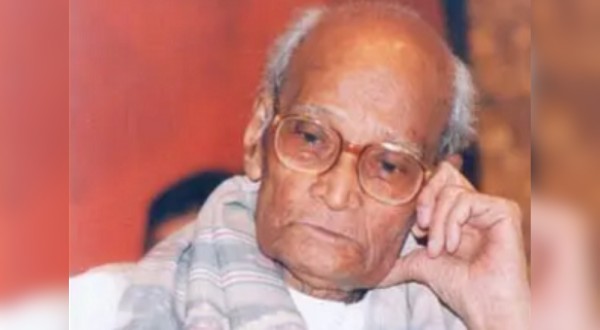
Late Mr. Siddhraj Dhadda
Jamna Lal Bajaj Awardee 2002

Late Mr. Siddhraj Dhadda
Jamna Lal Bajaj Awardee 2002
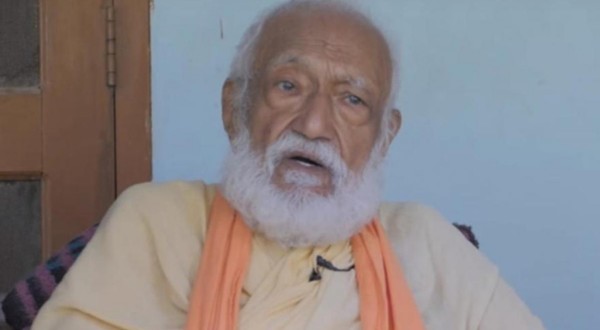
Late Dr. GD Agarwal
Renowed Environmental Scientist

Late Dr. GD Agarwal
Renowed Environmental Scientist
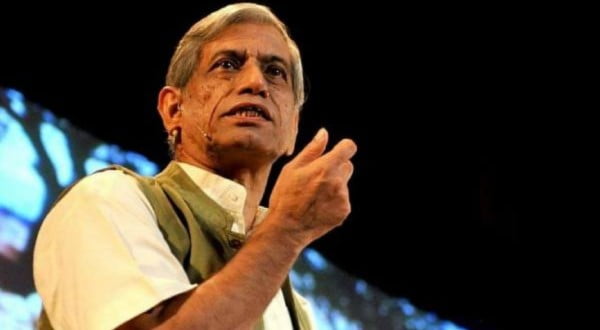
Late Mr. Anupam Mishra
Jamna Lal Bajaj Awardee 2011

Late Mr. Anupam Mishra
Jamna Lal Bajaj Awardee 2011
Executive Board

Dr. Indira Khurana
Chief Advisor

Dr. Indira Khurana
Chief Advisor

Dr. Pradeep Kumar Singh
Vice Chairperson

Dr. Pradeep Kumar Singh
Vice Chairperson
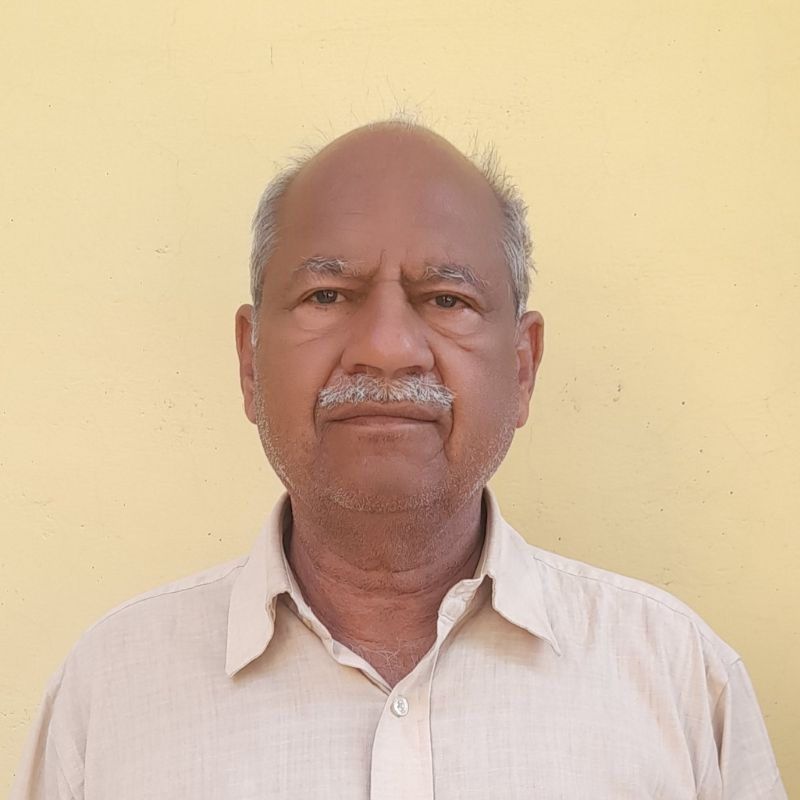
Padma Shri Lakshman Singh
General Secretary

Padma Shri Lakshman Singh
General Secretary

Mr. Abhinav Agarwal
Treasurer

Mr. Abhinav Agarwal
Treasurer

Ms. Meena Singh
Member

Ms. Meena Singh
Member
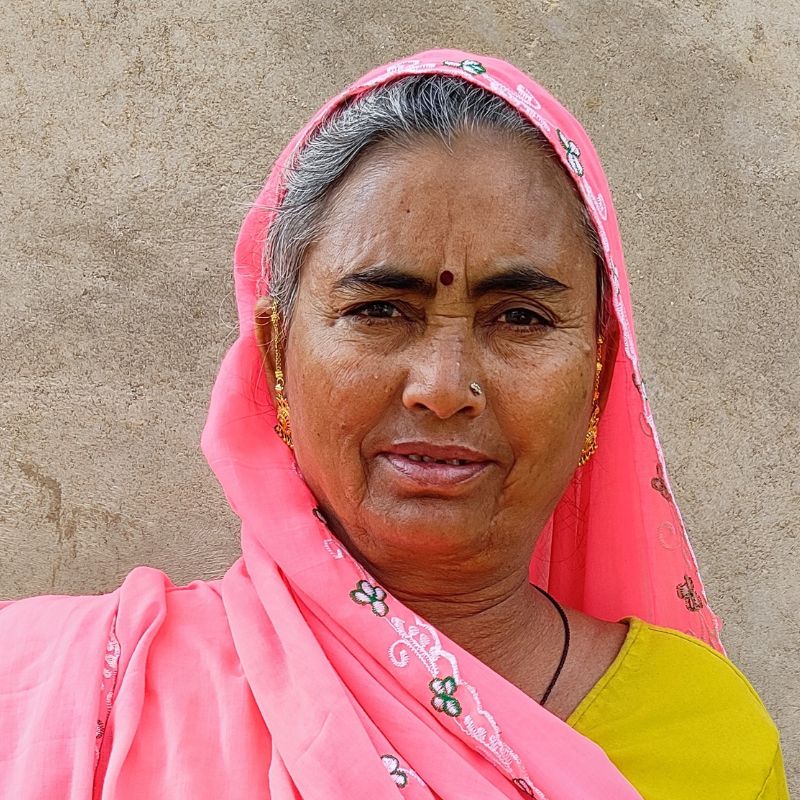
Ms. Kisturi Khateek
Member

Ms. Kisturi Khateek
Member

Mr. Chotelal Meena
Member

Mr. Chotelal Meena
Member
Leader
Maulik Sisodia
Executive Director
Maulik Sisodia is a development professional who has been leading Tarun Bharat Sangh since 2009. Sisodia has a keen interest in public-policies related to rivers and water resources and has expertise in program design and project management at the grassroots level with communities with the focus on design thinking. In addition, Sisodia has designed campaigns at national and international levels for causes related to water conservation and management.
Sisodia completed his PGP in development management from SPJIMR, Mumbai, an MBA in agri-business from SIIB, Pune, and an MA in economics from the University of Rajasthan in Jaipur. He has been recognized as a prestigious LEAD India fellow and a New Voices fellow with the Aspen Institute, USA. His extensive knowledge and experience make him a valuable asset to the development sector, and his leadership at Tarun Bharat Sangh has helped bring positive change to communities across India.
Our Awards
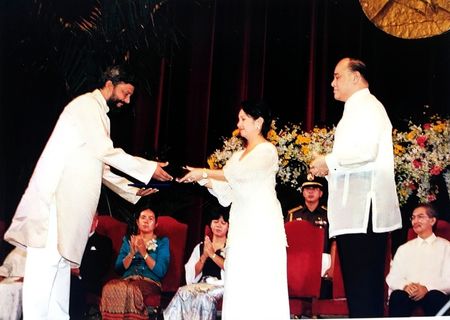
Ramon Magsaysay Award
2001
Ramon Magsaysay Foundation, Philippines | Hon’ President of Philippines
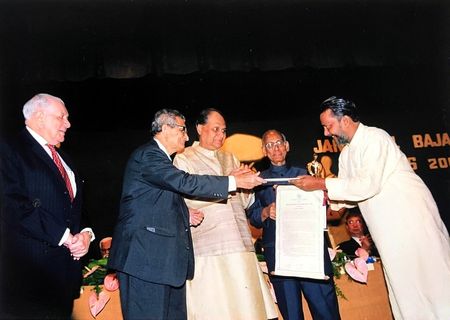
Jamna Lal Bajaj Award
2005
Jamna Lal Bajaj Foundation, Maharashtra | Hon' Nobel Laureates Amartya Sen
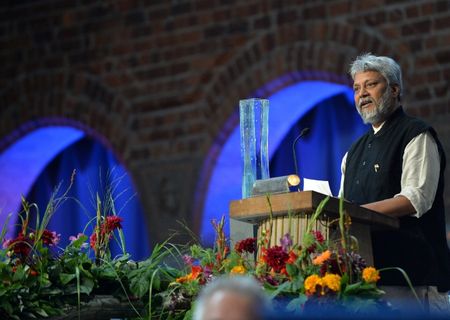
Stockholm Water Prize
2015
Stockholm International Water Institute, Sweden | Hon' HH King of Sweden
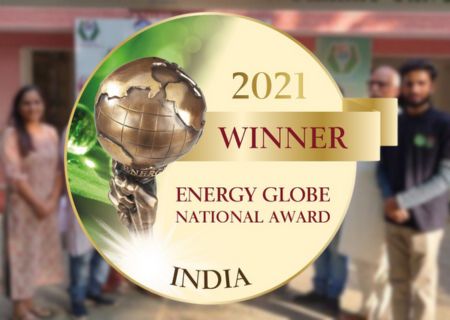
Energy Globe Award
2021
Energy Globe Foundation, Austria | Trade Commissioner in India
| YEAR | AWARD’S NAME | ORGANIZATION NAME | PRESENTER |
| 2023 | Vishwa Guru Ambassador Awards | Spirituality for Health and Environment Alliance | |
| 2022 | USTM Missionary Award | University of Science & Technology, Meghalaya | |
| 2022 | Lifetime Achievement Award | Central University of Rajasthan | |
| 2022 | Zee National Achievers’ Award | Zee Media Digital | |
| 2021 | Energy Globe India Award | Energy Globe Foundation, Austria | |
| 2019 | Sir Thomas Cangan Leadership Award | Institute of Rural Management, Rajasthan | |
| 2019 | World Peace Award Campaign | Yogmata Foundation, Uttrakhand | |
| 2019 | Global Earth Repair Award | Friends of the Trees Society, USA | |
| 2019 | Lifetime Achievement Award | Telangana Jagruthi, Telangana | Hon’ Governor of Telangana |
| 2018 | Maha Palak Award | Sir Foundation, Maharashtra | |
| 2018 | The UN World Water Development Report 2018 (pg.40): http://unesdoc.unesco.org/images/0026/002614/261424e.pdf | ||
| 2017 | Jeevan Gaurav Award | Satish Havre Foundation, Maharashtra | |
| 2016 | Yash Bharti Award | Government of UP | Hon’ CM of UP |
| 2016 | International Ahimsa Award | Institute of Jainology, United Kingdom | Ministers of UK, Lord House |
| 2016 | Baroda Sun Achievement Award | Bank of Baroda, Maharashtra | Hon’ Governor of Maharashtra |
| 2016 | KH Patil Rural development Award | KH Patil Trust, Karnataka | Hon’ Governor of Karnataka |
| 2016 | Bhagirathi Award | Prabhodhini Trust, Maharashtra | |
| 2015 | Stockholm Water Prize | Stockholm International Water Institute, Sweden | Hon’ HH King of Sweden |
| 2015 | Anant BhaleraoMemorial Award | Anant Bhalerao Trust, Maharashtra | |
| 2012 | Rotary Peace Through Service Award | Rotary Club of Pune, Maharashtra | |
| 2012 | Suryadatta National Award | Suryadatta Group of Institutes, Maharashtra | |
| 2012 | Special Award | The South Indian Education Society, Maharashtra | Hon’ Governor of Maharashtra |
| 2008 | Mr Rajendra Singh nominated in the list of “50 people who could save the planet”. | The Guardian | |
| 2006 | Lakshmipat Singhania‐ National Leadership | IIM Lucknow, Uttar Pradesh | Hon’ Minister of Finance, Govt. of India |
| 2005 | RajarshiShahu Maharaj Puraskar | Shahu Smarak Trust, Maharashtra | Hon’ Government of Maharashtra |
| 2005 | Jamna Lal Bajaj Award | Jamna Lal Bajaj Foundation, Maharashtra | Hon’ Nobel Laureates Amartya Sen |
| 2004 | International Thiess River Commendation | International Rivers foundation, Australia | |
| 2002 | Godavari Gaurav Award | Nasik, Maharashtra | Hon’ Governor of Uttar Pradesh |
| 2002 | Samajkarya Gaurav Puraskar | Keshav Gore Smarak Trust, Maharastra | Hon’ Minister of Rural Dev, Govt. of Maharashtra |
| 2001 | Esso Honour For Tiger Conservation | Esso | Hon’ Commissioner of Election Commission of India |
| 2001 | Ramon Magsaysay Award | Ramon Magsaysay Foundation, Philippines | Hon’ President of Philippines |
| 2001 | Diwaliben Award | Diwaliben Mohanlal Mehta Charitable Trust, Maharashtra | Hon’ Chief Justice of India |
| 2000 | Acharya TulsiSamajVikas Award | Acharya Tulsi Samaj Vikas Adhyayan Sansthan, Rajasthan | Hon’ Acharya Mahapragya Ji |
| 2000 | Sanskrit Samvardhan Award | Shrimad RajchandraAdhyatmikSandhan Kendra, Gujarat | Hon’ Governor of Gujarat |
| 1999 | Ashok Gondhiya Award | Young Men’s Gandhian Association, Gujarat | Hon’ Granddaughter of Mahatma Gandhi |
| 1999 | Tiger Conservation Award | Tiger Trust India, Rajasthan | Hon’ Chief Minister of Rajasthan |
| 1998 | Mr Rajendra Singh nominated as Man of the Year | The Week | |
| 1994 | Rotary India Award (Environment Pollution | Rotary International, New Delhi | Hon’ President of India |
| 1994 | Indira Gandhi Paryavaran Puraskar | Government Of India, New Delhi | Hon’ Minister of Environment, Govt. of India |
| 1990 | Sanskrit Award | Sanskrit Prathisthan, New Delhi | Hon’ Minister of Environment, Govt. of India |
Brand
We proudly present our brand identity as “Ethical & Inspiring.” At Tarun Bharat Sangh, we strongly believe that a brand is not just a logo or a name; it represents the values, principles, and commitments that drive our organization and its partnerships. Our brand embodies the moral and ethical foundations that connect us with our partners and communities, as we work together for a greater cause.
Our unwavering dedication to four core values – “equity, justice, nonviolence, and truth” – forms the bedrock of our brand. To effectively communicate our message and engage with our stakeholders, we place great emphasis on the design and visibility of our brand. Through our brand’s design elements and communication strategies, we aim to spread awareness and rally support for our cause, reaching out to diverse audiences, including the youth of India.
Our Partners
Partners 2020 Onwards
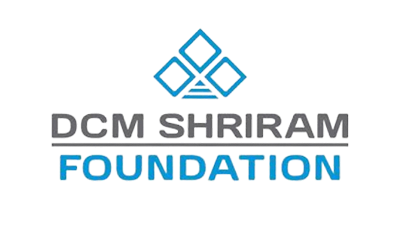


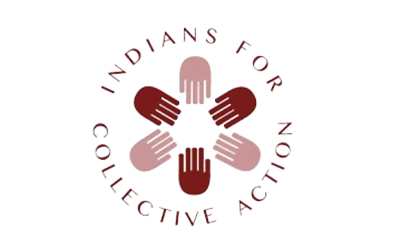

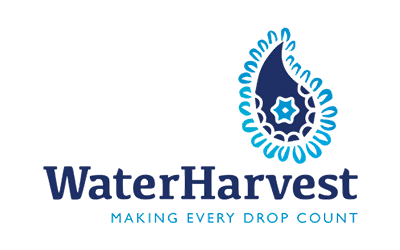
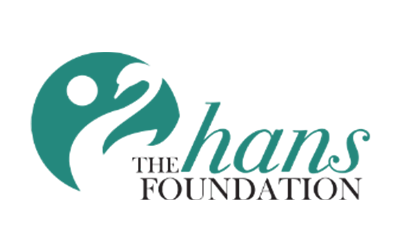


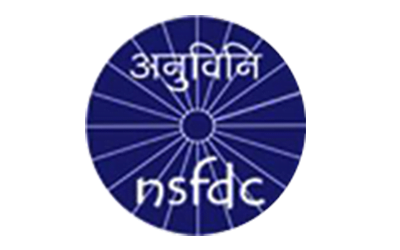

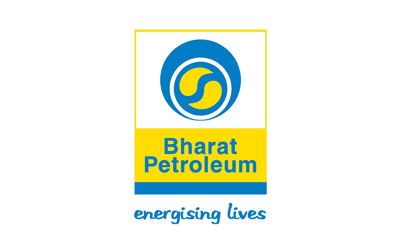











Partners During 1975-2020
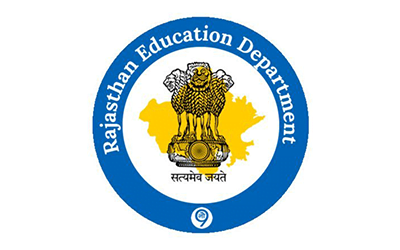

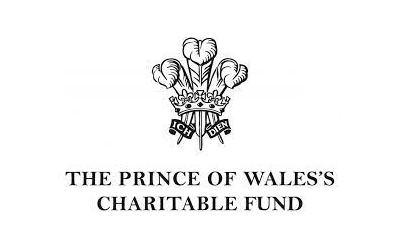


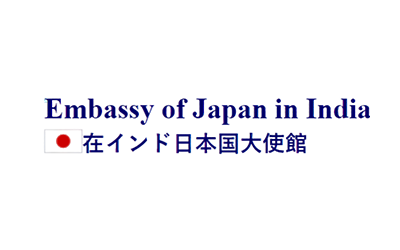




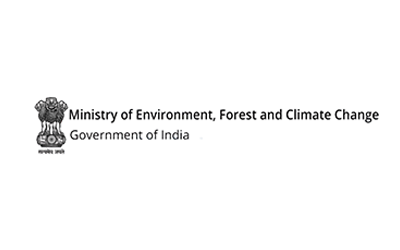
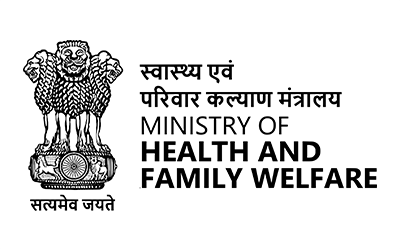

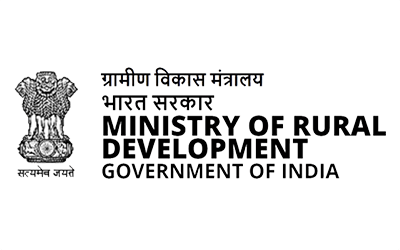
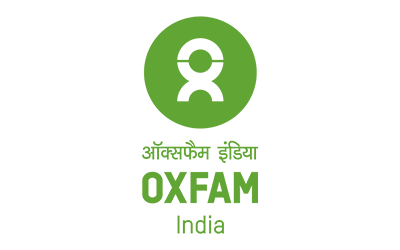





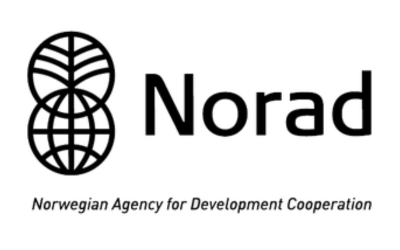
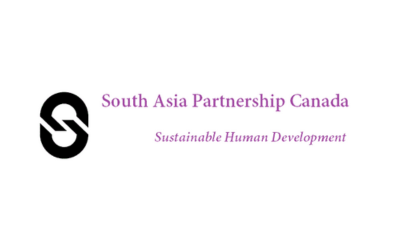
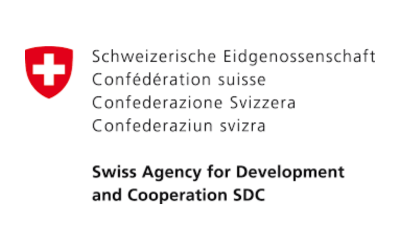
Knowledge Partners
